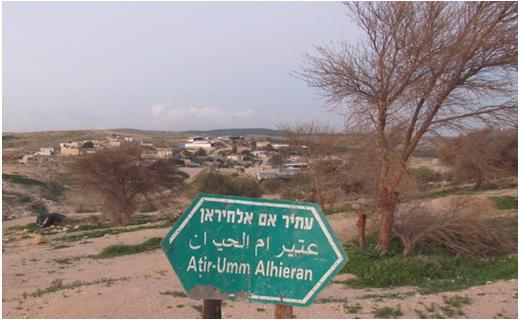The Joint List plans to protest a Supreme Court decision to raze an unrecognized Bedouin village in the Negev to make way for a Jewish town. By a 2:1 majority, the court rejected an appeal by Umm al-Hiran residents Tuesday, May 5, ruling that the village was built on state land and its Arab-Bedouin residents had “no legal rights to it.”
In response to the ruling, activists and Knesset members from the Joint List said that “day of rage” demonstrations were being planned for the coming month to protest the ruling and the state’s controversial initiative to resettle Bedouin communities, Al-Ittihad the daily Arabic language newspaper of the Communist Party of Israel reported Friday, May 8.
The right-wing government-backed Prawer Plan, shelved in 2013 amid violent protests, called for Israel to officially recognize and register some unrecognized villages while relocating residents of many other villages to other towns and planned communities. The government argued that the growing population required planning and urbanization, while Arab and Jewish leftist activists insisted the plan amounted to a land grab driven by anti-Arab racism.
Home to nearly 700 residents, Umm al-Hiran was established by the Bedouin al-Qia’an tribe in 1956 in coordination with the Israeli army, after a nearly decade-long dispute. Since its establishment, the officially unsanctioned village has not been linked to water or electricity infrastructures and has never been included in an official governmental zoning plan. New construction is forbidden at the site. The planned Jewish city of Hiran is set to be erected at the site of the Bedouin Umm al-Hiran. It will initially include 2,500 housing units and its future population is expected to be mostly religious Jews.
Last month, representatives of the Joint List led by MK Ayman Odeh (Hadash) staged a 4-day protest march through unrecognized Bedouin villages to Jerusalem demanding more equitable planning for the 260,000 residents living in 36 villages in Israel’s south. Many live in extreme poverty and more than half reside in unrecognized villages with no access to electricity or running water.
Related:



